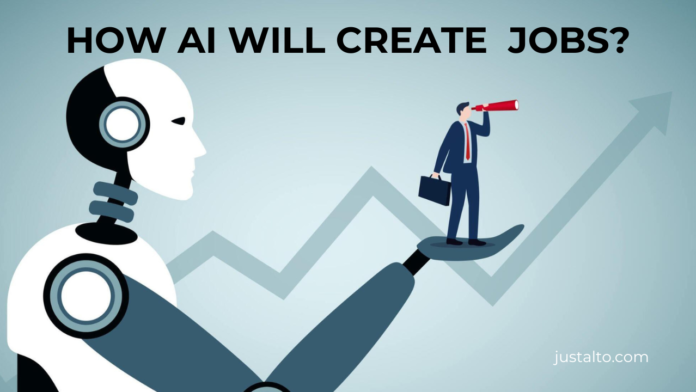Table of contents
Do you remember those science fiction scenes where robots steal our jobs? There is a lot more complexity to the way AI-driven automation is changing the workplace than what you see in Hollywood. While it’s true that AI will automate some professions, the good news is that it’s on track to generate more employment opportunities than it eliminates. Hold on tight as we dispel the myths and delve into the thrilling new possibilities that AI opens up!
Myth Busting: Will AI Replace Human Workers?
Let’s clear the air: AI isn’t some terrible Terminator out to grab your livelihood. The widespread assumption that AI would eventually supplant humans is completely false. Our strengths—creativity, critical thinking, and emotional intelligence—can be unleashed when it takes care of mundane, rule-based jobs. Envision AI taking care of routine tasks like data entry, appointment scheduling, and financial report analysis so you can concentrate on more strategic work, connection development, or providing individualized customer support. Can you tell the two?
The Rise of the Machines… as Our Partners!
Instead of a robotic takeover, think of AI as a powerful partner. Imagine a world where doctors employ AI-powered diagnostics to offer more accurate diagnoses, or lawyers leverage AI research assistants to find legal precedents in seconds. These are only a look into the new employment roles emerging at the interface of AI and human expertise:
- AI Developers & Engineers: These are the architects of the future, developing, building, and maintaining AI systems. Think cutting-edge programmers, algorithm specialists, and hardware designers.
- AI Implementation Specialists: Think of them as the translators, integrating AI effortlessly into existing procedures across diverse sectors. They’ll need to grasp both business needs and AI capabilities.
- AI Ethicists & Governance Experts: As AI’s power grows, ensuring its appropriate use becomes vital. These specialists will handle ethical challenges, detect biases, and design frameworks for safe and fair AI development.
Don’t Get Left Behind: Upskilling for the AI Era
Change is inevitable, but don’t worry, you’re not powerless. The key lies in upskilling and reskilling. Embrace lifelong learning to stay relevant in the AI-powered future. Here are some in-demand skills to consider:
- Data Analysis & Visualization: Turning data into insights is crucial, and AI tools may help you do it faster and better. Learn to analyze data, spot patterns, and convey findings effectively.
- AI Literacy: Don’t be scared by the buzzwords! Understand the basics of AI, its powers, and limitations. This will help you navigate the changing landscape and employ AI successfully.
- Human-Computer Interaction (HCI) Design: As AI becomes more embedded into our lives, designing seamless and natural interactions will be key. Hone your abilities in user experience design and learn how humans engage with technology.
Working Together: A Smooth Transition to the AI Age
The AI revolution won’t be smooth sailing for everyone. But by working together, we can minimize disruptions and ensure a just transition. Here’s how:
- Collaboration: Governments, businesses, and individuals need to collaborate. Governments can invest in education and reskilling programs, while businesses can give upskilling chances for their staff. Individuals, in turn, should embrace lifelong learning and actively pursue new talents.
- Education Reform: Our education institutions need to adjust to prepare future generations for the AI age. Focus on critical thinking, problem-solving, and creativity, with technical skills.
- Social Safety Nets: We need to help those who might be displaced by automation with proper social safety nets and retraining initiatives.
Conclusion: The Future is Bright, Embrace the Change!
While AI will undoubtedly transform the workplace, the future is far from bleak. By embracing AI as a partner, upskilling ourselves, and working together, we can ensure this transformation creates more opportunities than challenges. So, put down the pitchforks and pick up your learning tools. The future of work is exciting, and with the right approach, we can all thrive in it!
Remember, this is just a starting point.


Reading your blog has revolutionized the way
I think about SEO. I can’t wait to implement these strategies.
Thank you!